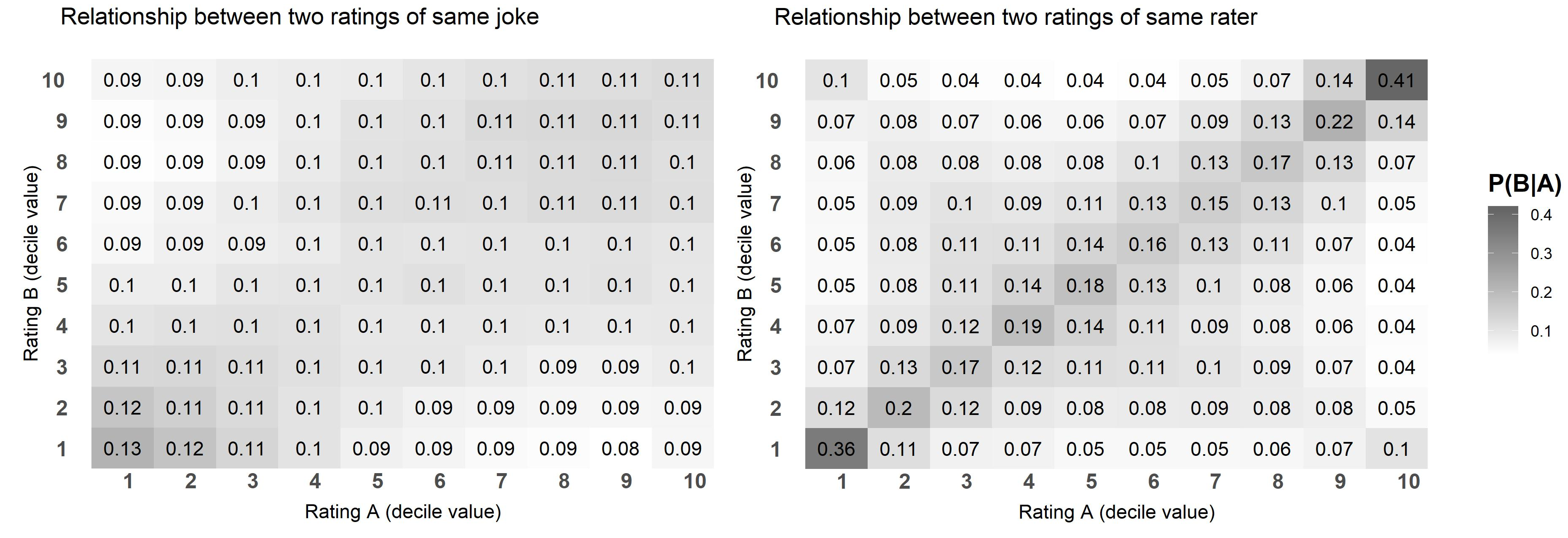Why do people laugh?
Translational abstract:
“When attempting a joke, you likely ask yourself: “Will the person in front of me laugh?”. At least three factors are at play: the joke (e.g., is it funny?), the listener (e.g., how do they usually respond to humor?), and their interaction (e.g., is there a match between joke content and listener taste?). Here, we assess across a variety of archival and new studies, which factor is the most important when predicting the success of your joke. Results consistently forward that the quality of the joke was the least informative, because humor tastes vary immensely across people. Most important was the match between joke content and listener preferences, but the overall tendency of a person to respond positively was also relatively important. Thus, you should know your audience rather than trying to find the best joke in the world.”
In order to establish the contribution of each source of variance (stimulus, perceiver, interaction) we employed a variance decomposition approach using multilevel models. Results varied noticeably across stimulus types (funny words, written jokes, memes/images, videos), but consistently forwarded that audience selection is more impactful than joke selection. The plots below emphasize this point.

Figure description. Left: Probability of Rating B given Rating A of the same humor stimulus. Example: Look at cell (10, 10) in the heatmap. The value is .11, meaning that if a random Rater A scored this joke a 10, there was a probability of .11 that a randomly selected Rater B also scored it a 10. Right: Probability of Rating B given Rating A by the same rater. Example: Again, look at cell (10, 10) in the heatmap. The value is .41. That means that if Rater A scored a joke a 10, there is a probability of .41 that this rater scored a different randomly selected stimulus also with a 10 (the supplementary materials include heatmaps for all individual datasets).
All in all, this project strongly contributed to deemphasizing the social-psychological focus on humor materials in favor of investigating humor audiences which is more common in personality psychology.
If you are interested, please check out the: Psychological Science postprint
